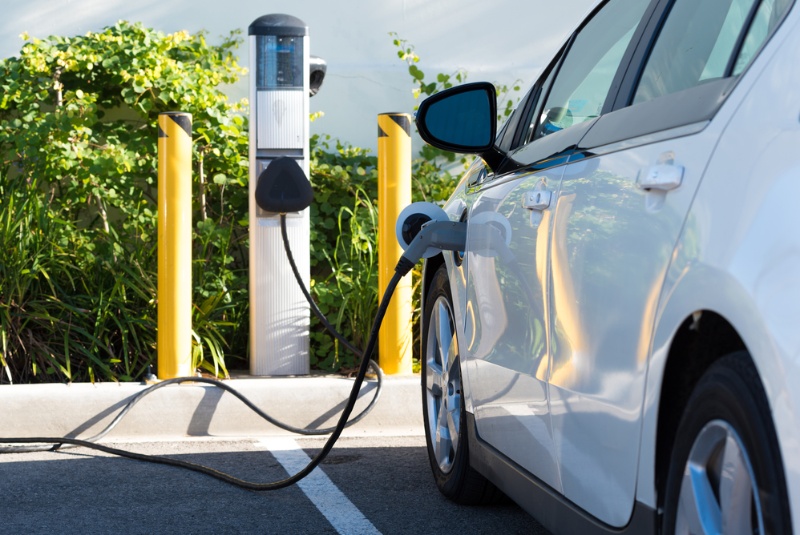Navigating the world of electric vehicles (EVs) can be both exciting and overwhelming for prospective buyers. With the automotive industry's shift towards sustainability, EVs have emerged as a viable alternative to traditional gasoline-powered vehicles, offering numerous benefits such as lower emissions, reduced fuel costs, and innovative technology features. However, making an informed decision requires understanding key factors like battery range, charging options, incentives, and vehicle types. This guide aims to demystify the process, providing you with the essential knowledge needed to choose an EV that best fits your lifestyle and needs. Whether you're an eco-conscious commuter or seeking the latest in automotive technology, this guide will help you navigate the EV market with confidence.
Understanding Electric Vehicle Types
The EV market offers a variety of vehicle types, each catering to different needs and preferences. These include all-electric vehicles (BEVs), which run solely on electricity stored in batteries, and plug-in hybrid electric vehicles (PHEVs), which combine a battery-powered electric motor with a conventional gasoline engine. BEVs offer the advantage of zero tailpipe emissions and lower operating costs, while PHEVs provide the flexibility of extended range thanks to their gasoline engine. When selecting an EV type, consider factors such as your typical driving distance, availability of charging stations, and environmental impact. Understanding the distinctions between BEV and PHEV models will help you make an informed decision that aligns with your driving habits and sustainability goals.
Evaluating Battery Range and Charging Requirements
One of the most critical considerations when purchasing an EV is the vehicle's battery range – the distance it can travel on a single charge. Advances in battery technology have significantly increased ranges, making EVs more practical for a wider range of users. However, range varies widely among models, so it's essential to choose an EV that meets your daily driving needs without causing range anxiety. Additionally, consider the charging infrastructure in your area and whether you can install a home charging station. Understanding charging options, including the difference between Level 1, Level 2, and DC fast charging, will help you plan for convenient and efficient charging, ensuring your EV fits seamlessly into your lifestyle.
Incentives and Cost Savings
Financial incentives are a significant factor in the EV purchasing decision. Many governments offer tax credits, rebates, and other incentives to encourage EV adoption, which can substantially reduce the upfront cost of your vehicle. Additionally, owning an EV typically results in lower operating costs compared to gasoline vehicles, thanks to cheaper electricity rates and reduced maintenance expenses. When considering an EV, research the available incentives in your area and calculate the total cost of ownership, including purchase price, charging costs, and maintenance, to understand the long-term financial benefits of going electric.

Selecting the Right EV Model for You
With a growing number of EV models on the market, selecting the right one can seem daunting. Consider factors such as vehicle size, performance, technology features, and brand reputation. Are you looking for a compact city car, a spacious family SUV, or a high-performance sports car? Evaluate what features are most important to you, such as advanced driver-assistance systems (ADAS), infotainment options, and interior comfort. Test driving several models can provide valuable insight into how different EVs handle and fit your personal preferences. Taking the time to research and test drive potential vehicles will ensure you choose an EV that not only meets your practical needs but also delivers an enjoyable driving experience.
Navigating EV Infrastructure and Ownership
Becoming an EV owner also means adapting to a new refueling paradigm. Unlike traditional vehicles, EVs are primarily charged at home, which may require installing a home charging station. Additionally, leveraging public charging networks for longer trips requires some planning. Familiarize yourself with the locations of charging stations along your common routes and consider network memberships that may offer benefits such as reduced rates or reserved charging spots. Understanding the nuances of EV charging and infrastructure will help you enjoy the full benefits of electric driving without inconvenience.
Future-Proofing Your EV Purchase
As EV technology continues to evolve, consider how your chosen vehicle will stand the test of time. Factors such as battery lifespan, warranty coverage, and software updates can impact your EV's long-term value and performance. Some manufacturers offer over-the-air (OTA) updates that enhance vehicle features and functionality without the need for a physical service visit. Choosing an EV from a manufacturer committed to technology advancement and customer support will help ensure your vehicle remains up-to-date and valuable in the years to come.
The Environmental Impact of Going Electric
Beyond personal benefits, choosing an EV has a positive impact on the environment. Electric vehicles produce zero tailpipe emissions, contributing to cleaner air and reducing greenhouse gas emissions. When powered by renewable energy sources, the environmental benefits of EVs are even more significant. Consider your EV purchase as part of a larger commitment to sustainability and environmental stewardship, contributing to a cleaner, greener future for all.
Transitioning to an electric vehicle is a forward-thinking choice that aligns with global efforts to reduce carbon emissions and combat climate change. By understanding the different types of EVs, evaluating battery range and charging options, taking advantage of incentives, and considering the environmental impact, you can make an informed decision that suits your lifestyle and values. Embrace the future of driving with confidence, knowing you've chosen a sustainable, cost-effective, and enjoyable mode of transportation. With the right knowledge and preparation, finding the perfect EV for your needs can be a straightforward and rewarding experience.




